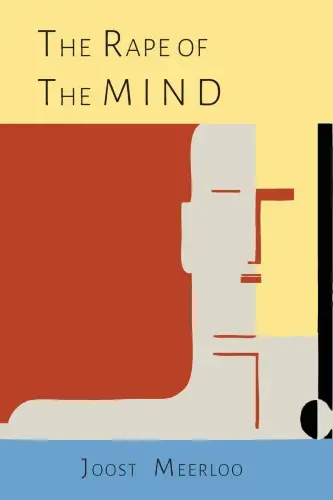The Rape of the Mind
Book Author: Joost Meerloo
Summary reviewed by:
Terrence Timmons
Terrence Timmons
Analyst
Bachelor of Arts (BA), University Of California, Santa Barbara 2019
With over 4 years of experience as an analyst. Terrence Timmons is committed to analyzing summaries without compromising on quality.
The Rape of the Mind: Summary
Unlock the Secrets to Psychological Warfare Waged Upon the Human Mind! In Joost Meerloo's paramount work, “The Rape of the Mind”, the reader is granted an exclusive passage into the abyss of mental coercion and manipulation, as employed by totalitarian regimes and even seemingly benign institutions. Like a skilled detective, Meerloo meticulously unearths the tools that have been exploited to invade the citadel of human thought and imprison the intellect.
Primarily an inquiry into the phenomena of brainwashing and thought control, the tome captures Meerloo’s formidable expertise as a Dutch-American psychoanalyst and his own brush with totalitarianism during World War II. He accentuates that the seemingly impermeable fortress of the human mind can be breached, not merely through physical torture but more deviously through psychological torment.
An essential concept that resonates through the pages is "Menticide" – the killing of the spirit – which reveals how diverse apparatuses of manipulation are wielded to break down an individual’s capacity for independent thought. Whether it is the egregious barbarity of the totalitarian regime or the subtle social pressure within a democratic society, the spectrum of mental coercion is broad and pervasive.
Meerloo also casts a spotlight on the dangers of compliance and conformity, elucidating how the chains of social expectation can turn the individual into an automaton, void of critical thinking and personal autonomy. He delves into the role of language as a tool for mental colonization, and how by controlling words and meaning, one can shape perception and ultimately control thoughts.
In the closing chapters, Meerloo’s scrutiny shifts to the remedy, the antidote to this malevolent intrusion. He exhorts the imperative of mental vigilance and fostering an environment of open dialogue and critical thinking. The text becomes a clarion call to not only understand the machinations of thought control but to actively engage in safeguarding our own mental sovereignty and that of our fellow citizens.
The Rape of the Mind: Genres
Non-fiction
Psychology
Political Science
Sociology
History
The Rape of the Mind: Themes
Menticide: This theme refers to the killing of the human spirit through psychological manipulation. For example, Meerloo talks about the use of “confession” in totalitarian regimes as a form of mental subjugation.
Conformity and Compliance: Meerloo emphasizes how societies can inadvertently coerce individuals into conformity, stripping them of independent thought. He discusses the experiments of Solomon Asch to exemplify the power of group pressure.
Language as a Tool of Control: The book addresses how language can be manipulated to control thought. For instance, it mentions the “newspeak” in George Orwell’s “1984” as an example of language manipulation.
Defense Against Mental Intrusion: Meerloo outlines the importance of being vigilant and defending oneself against mental coercion. He advocates for education and open dialogue as a means of fostering independent thinking and protecting mental autonomy.


The Rape of the Mind
Date Published: 1956
Disclaimer: As an Amazon Associate I earn from qualifying purchases.




